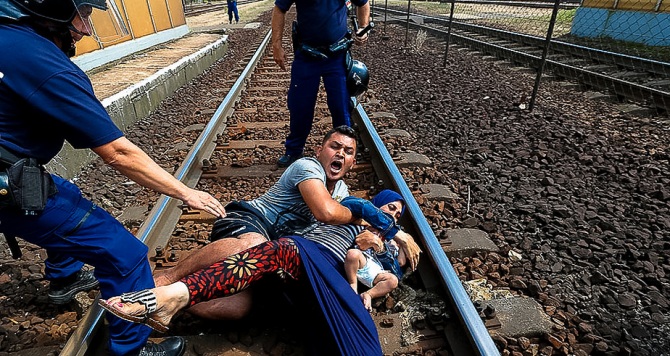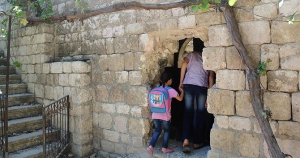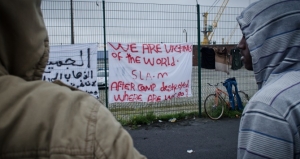Solving the migrant crisis requires Europe and the US to sign up to a global resettlement plan for 60 million people fleeing conflict and persecution.

Kevin Watkins, Executive Director of the Overseas Development Institute (ODI) and Professor in Practice at LSE, writes for the Independent.
Europe once stood for human rights, collective action and the reconstruction of lives shattered by war. Not anymore. Faced with a refugee crisis that leaves the lifeless body of a three year old Syrian toddler washed up on a beach, 70 dead in the back of a van on an Austrian lay-by, and thousands drowned in the Mediterranean, Europe’s leaders are behaving like rabbits caught in the headlights.
The time has come for the EU’s citizens to draw a line in the sand. We need a plan of action commensurate with the scale of the displacement. And we need a public mobilisation in defence of our shared values. This crisis is also about us.
So what would a credible plan of action look like? The starting point is an honest conversation. Hysteria about economic migrants is deflecting attention from the conflict, persecution and human rights violations that has left some 60 million people displaced, including 4 million Syrians. We have legal and moral responsibilities to support their claims for asylum.

Discharging these responsibilities demands credible action in five areas.
First, EU member states and other countries – including the US – need to commit to a global resettlement plan for Syrian refugees. Nothing would do more to undermine people smuggling than an international agreement to resettle 1 million refugees over the next year. There is a precedent in the Vietnam boat crisis and the Ugandan Asian crisis in the early 1970s.
Second, we need to cut out the beggar-you-neighbour politics. Bluntly stated, the response of the UK and Spain to the resettlement of Syrian refugees is a national embarrassment. The UK has so far pledged 200 places – we should match Germany’s commitment of 30,000.
Third, the EU should ramp up the financing and capacity needed to support the orderly processing of asylum claims in Greece, Italy and Hungary. The alternative is what you see on your TV screens every night.
Fourth, we need a Marshall Plan for Syrian refugees in the region. Many are making the perilous journey to Europe because they see no hope of a better future. The UN’s regional appeal has asked for US$4.5bn, less than one third of which has been delivered. Providing education, health and minimal levels of welfare support for refugees would require at least US$20bn.
Fifth, Europe needs a vastly scaled-up search and rescue commitment. The £86m budget for the Triton programme is a sad reflection of the value placed on the lives of others. Does a group of the world’s richest countries with some of its most powerful naval capabilities really need to let Syrian toddlers and Eritrean women drown?
In the last analysis, the EU’s migrant crisis is not going to be resolved by razor wire in Hungary, or political xenophobes bent on creating a moral panic. This is a time for measured leadership and bold action. It’s a time for us to act on the basis of our common humanity.
Related Posts
   |





